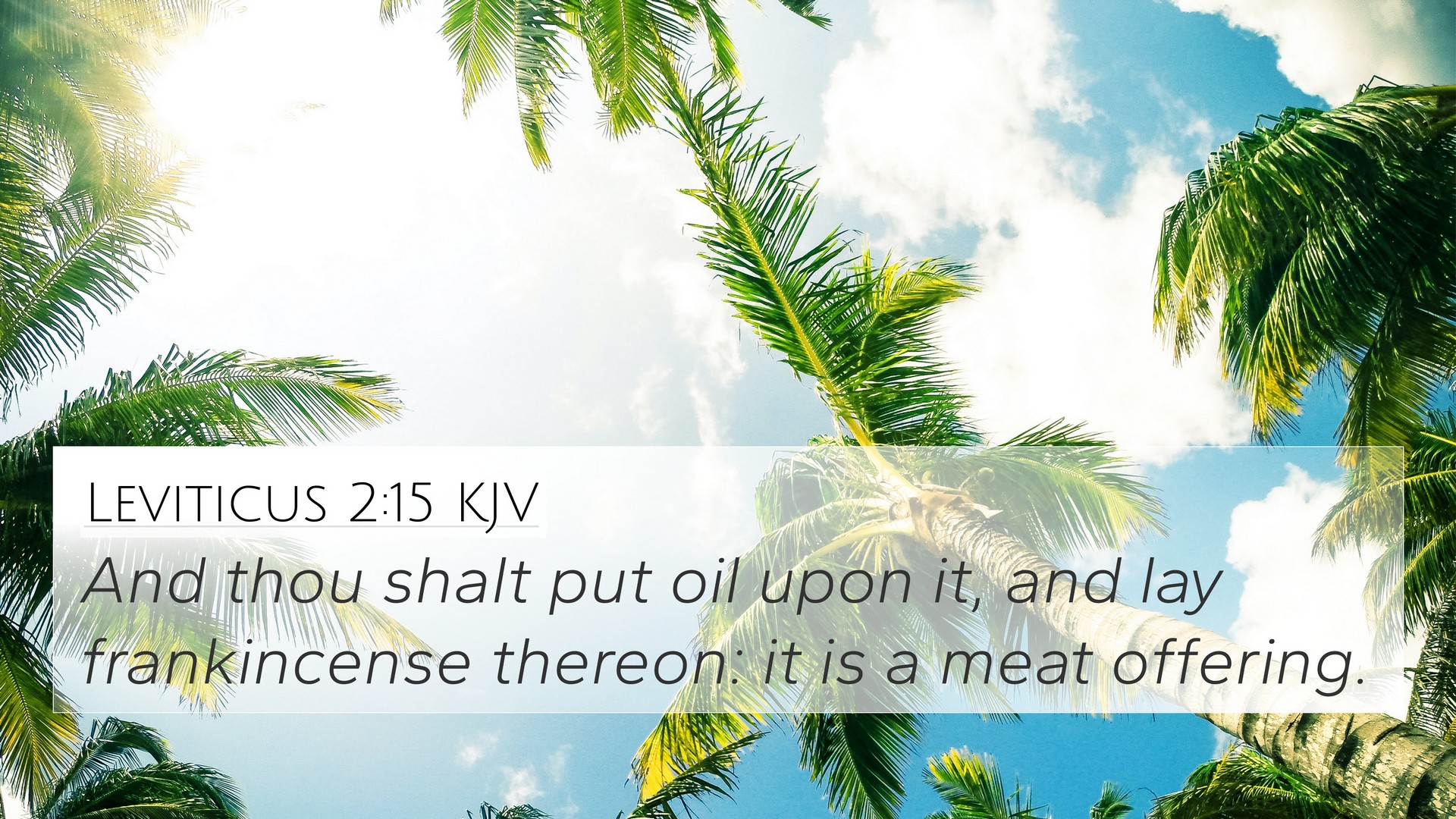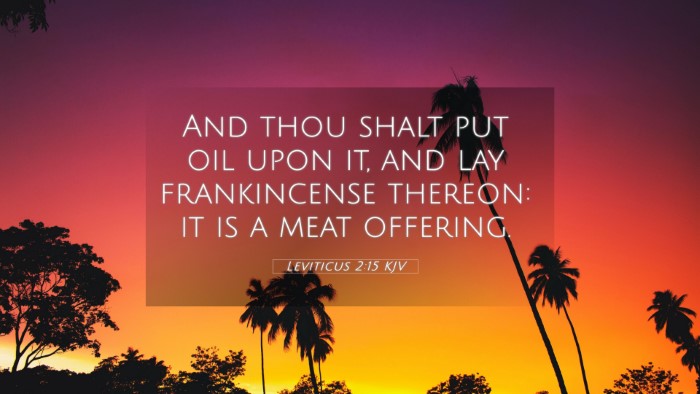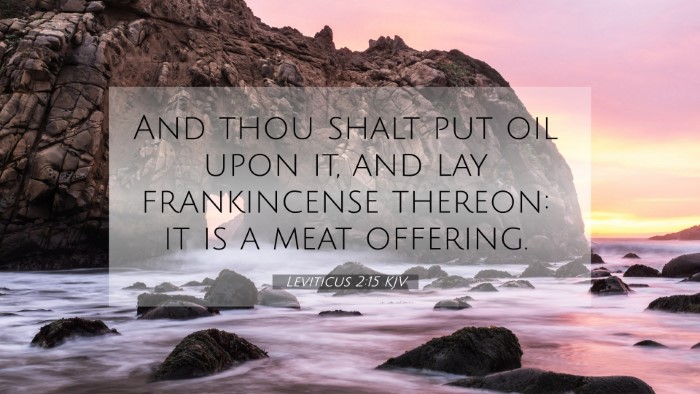Understanding Leviticus 2:15
Leviticus 2:15 states:
“And you shall put oil on it, and lay frankincense on it. It is a grain offering.”
Summary of the Verse
This passage speaks to the instructions regarding grain offerings in the context of worship and sacrifice in ancient Israel. The oil and frankincense are significant elements that enhance the offering's sanctity and its pleasing aroma to God.
Combined Insights from Public Domain Commentaries
Matthew Henry's Commentary
Matthew Henry emphasizes the symbolic nature of the grain offering. He notes that the oil represents the Holy Spirit and the frankincense symbolizes prayer. Together, they signify the believer's devotion and the sweetness of communion with God.
Albert Barnes' Notes
Barnes provides a practical interpretation, highlighting that the addition of oil and frankincense exemplifies the need for proper preparation in offerings. He underscores that such offerings are not merely rituals but should stem from a heart genuinely seeking to honor the Lord.
Adam Clarke's Commentary
Clarke elaborates on the nature of frankincense, explaining its use as a valuable spice in ancient times, which illustrates the costliness and value associated with offerings made to God. He also reinforces the idea that each offering has specific requirements that must be adhered to reflect sincerity and commitment.
Thematic Connections
The themes arising from Leviticus 2:15 reflect pivotal concepts in worship such as:
- Devotion: The act of offering signifies the devotee's relationship and commitment to God.
- Purity in Worship: The requirements for the grain offering stress the importance of presenting offerings that are acceptable and holy.
- Prayer and Intercession: The role of frankincense ties closely to the notion of prayers arising before God as a pleasing aroma.
Cross-References to Leviticus 2:15
Leviticus 2:15 connects to numerous other Bible verses, creating a rich tapestry of meaning:
- Exodus 30:7-8 - Discusses the continual offering of incense and its importance in worship.
- Leviticus 2:1-10 - Provides the full details of the grain offering, showing its significance in ritual purity.
- Numbers 28:5 - Speaks of the oil’s role in the daily offerings, enhancing the understanding of offerings.
- Psalm 141:2 - Correlates the notion of prayer with the offering of incense, further linking the two concepts.
- Matthew 5:23-24 - Discusses the necessity of reconciling with others before offering, reinforcing the intention behind offerings.
- Philippians 4:18 - Compares gifts as a sweet-smelling sacrifice, echoing the aroma referenced in Leviticus.
- Hebrews 13:15-16 - Highlights the fruit of lips and good deeds as our modern-day sacrifices.
Conclusion
Leviticus 2:15 serves as a reminder of the holistic nature of worship in the Old Testament: it integrates symbolic actions with deep theological meanings. Engaging with this verse through various commentaries enriches our understanding and reveals the continuity of worship themes that persist into the New Testament.
SEO Considerations
This interpretive work is a valuable resource for those exploring:
- Bible verse cross-references
- Connections between Bible verses
- Cross-referencing Biblical texts
- Comparative Bible verse analysis
- Tools for Bible cross-referencing
- Bible cross-reference guide
- How to use Bible cross-references
Utilizing Cross-References in Study
When studying the Bible, understanding cross-references is essential. This involves:
- Identifying connections between Old and New Testament teachings
- Finding biblical parallels that enhance comprehension
- Using available resources, such as a Bible concordance or a cross-reference Bible study guide


